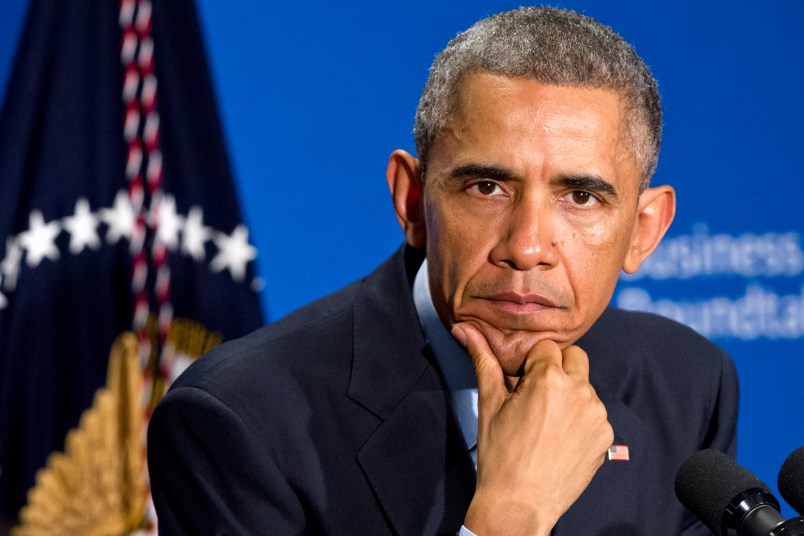WASHINGTON (AP) — Senators reached a deal Wednesday to move forward on President Barack Obama’s trade agenda only one day after Democrats embarrassed him by blocking it.
Lawmakers said roughly a dozen Senate Democrats agreed to let full-blown debate begin after both parties’ leaders consented to tweak the package that failed on a procedural vote Tuesday. Those Democrats’ votes were the difference between blocking the agenda and letting it move ahead.
The breakthrough doesn’t assure Obama of receiving “fast track” negotiating authority, which would let him send to Congress trade proposals it can kill or ratify, but not amend. That’s still subject to weeks or months of Senate and House debates, amendments and votes.
But the breakthrough gave the White House a welcomed respite from the negative headlines stemming from Tuesday’s setback, which was driven entirely by Democrats.
Most Democratic lawmakers oppose free-trade agreements, saying they reduce U.S. jobs. Labor unions and liberal groups, which are vital to Democrats’ campaigns, strongly oppose fast track.
Tuesday’s impasse involved side issues including a proposal to punish countries that keep their currency artificially low to boost exports. Wednesday’s agreement calls for a stand-alone vote on a customs enforcement bill that includes “currency manipulation” sanctions, perhaps as early as Thursday.
A vote on fast track would come later, possibly next week.
The administration generally opposes addressing currency issues in trade bills, saying it could invite allegations against the Federal Reserve’s efforts to help the U.S. economy. Keeping currency manipulation provisions out of the fast track bill was important to Obama’s allies. It’s possible the president would veto other bills that include such provisions.
Under Wednesday’s agreement, the Senate will vote first on the customs enforcement bill, and then on a bill to renew the African Growth and Opportunity Agreement. Those bills drew less debate in the Senate Finance Committee than did the fast track bill.
After that, senators presumably will have enough votes to start the full-blown debate over fast track, the most important and contentious of the trade items. It will include “trade adjustment assistance,” which provides aid to workers displaced by trade pacts, a priority for liberals.
Even with that, however, most Democrats may vote against fast track. But heavy Republican support, plus about a dozen Democrats, could move it through the Senate and to the House, where another fierce debate is likely.
If Obama wins fast track authority, he’s expected to ask Congress to ratify a long-negotiated, 12-nation Trans-Pacific Partnership. Parties include Japan, Vietnam, Mexico and Canada, but not China. Other proposed tradeagreements could follow.
Trade officials say Japan and other trade partners will not make their best offers in negotiations unless fast track provisions keep Congress from re-writing the plans.
Trade has divided Democrats for decades. President Bill Clinton fought hard to enact the North America Free TradeAgreement, or NAFTA, in 1995.
Many unions and liberals say NAFTA led to the offshoring of U.S. jobs. Obama and others say other economic factors, including technology and globalization, played far bigger roles.
Copyright 2015 The Associated Press. All rights reserved. This material may not be published, broadcast, rewritten or redistributed.









